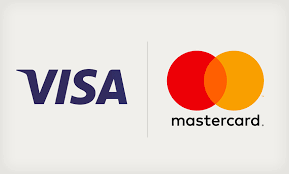Inspired by the “10 Emerging Skills for Professionals” article by Harvard Division of Continuing Education. This blog reflects our own take on how these skills apply to young professionals in Norfolk today.
Whether you’re just starting out or stepping into a new stage of your career, one thing’s clear: the world of work is changing fast.
Employers are hiring for more than just degrees or titles – they’re looking for skills that show adaptability, curiosity, and a willingness to grow. The good news? These skills aren’t just for the elite or super experienced. They’re learnable, buildable, and entirely within reach.
Here are 10 emerging skills identified by Harvard’s Division of Continuing Education (DCE), with a Co.next spin on what they mean – and how you can start developing them now.
1. Analytical Thinking
It’s about more than just data – it’s how you process information, ask the right questions, and make clear decisions.
Try this: Next time you’re given a task or topic, ask yourself: What do I know? What do I need to know? What’s missing here?
2. Creative Problem Solving
You don’t need to be an artist – creativity is about coming up with fresh solutions. Employers want people who think differently, not just follow the script.
Try this: Reframe a recent challenge: how else could it have been solved?
3. Tech Fluency
This doesn’t mean coding. It means being confident with digital tools, platforms, and how tech is changing your industry.
Try this: Pick one new tool this month (e.g., Canva, ChatGPT, Trello, Notion) and spend 15 minutes getting to know it.
4. Adaptability
Change is constant. The most valuable people are often the ones who stay grounded while everything shifts around them.
Try this: Reflect on a recent change – how did you respond, and what would you do differently next time?
5. Collaboration
Working well with others is a superpower – especially when ideas clash or stakes are high.
Try this: In your next group project or meeting, notice who isn’t being heard – and create space for them to speak.
6. Emotional Intelligence (EQ)
Understanding people, reading the room, managing your own emotions – EQ is what makes leaders relatable and teams more human.
Try this: After your next conversation, ask: How did that person likely feel? Did I help or hinder that?
7. Lifelong Learning
Careers aren’t static anymore. Curiosity and self-motivation are now key indicators of growth potential.
Try this: Set a tiny learning goal: one podcast, one article, one webinar per week. Reflect on what stuck.
8. Resilience
Not just bouncing back – it’s about bouncing forward. Employers value people who learn from setbacks and keep going.
Try this: Write down three challenges you’ve overcome. What did they teach you?
9. Leadership
You don’t have to wait for a title. Leadership can show up in how you support others, take initiative or ask the right questions.
Try this: Ask someone in your network: What does leadership look like to you? Start a conversation.
10. Cultural Competence
Today’s workplaces are global, diverse, and dynamic. Being able to connect across differences is a skill – not just a mindset.
Try this: Step outside your usual circle. Attend a talk, follow someone new, or listen to a perspective you don’t share.
Why this matters now
The future of work isn’t about doing what’s always been done. It’s about staying open to learning, thinking flexibly, and building skills that don’t show up on a traditional CV.
Whether you’re still in education, just getting started, or shaping your next step – these are the skills that will carry you forward.
🎤 Want to hear how real people are using these skills to drive change, build businesses and lead with purpose? Join us at Co.nextalks on 30 January 2026 – a TED-style event designed to inspire Norfolk’s next generation of professionals.
🎟 Tickets just £10 / £15 – Book here



